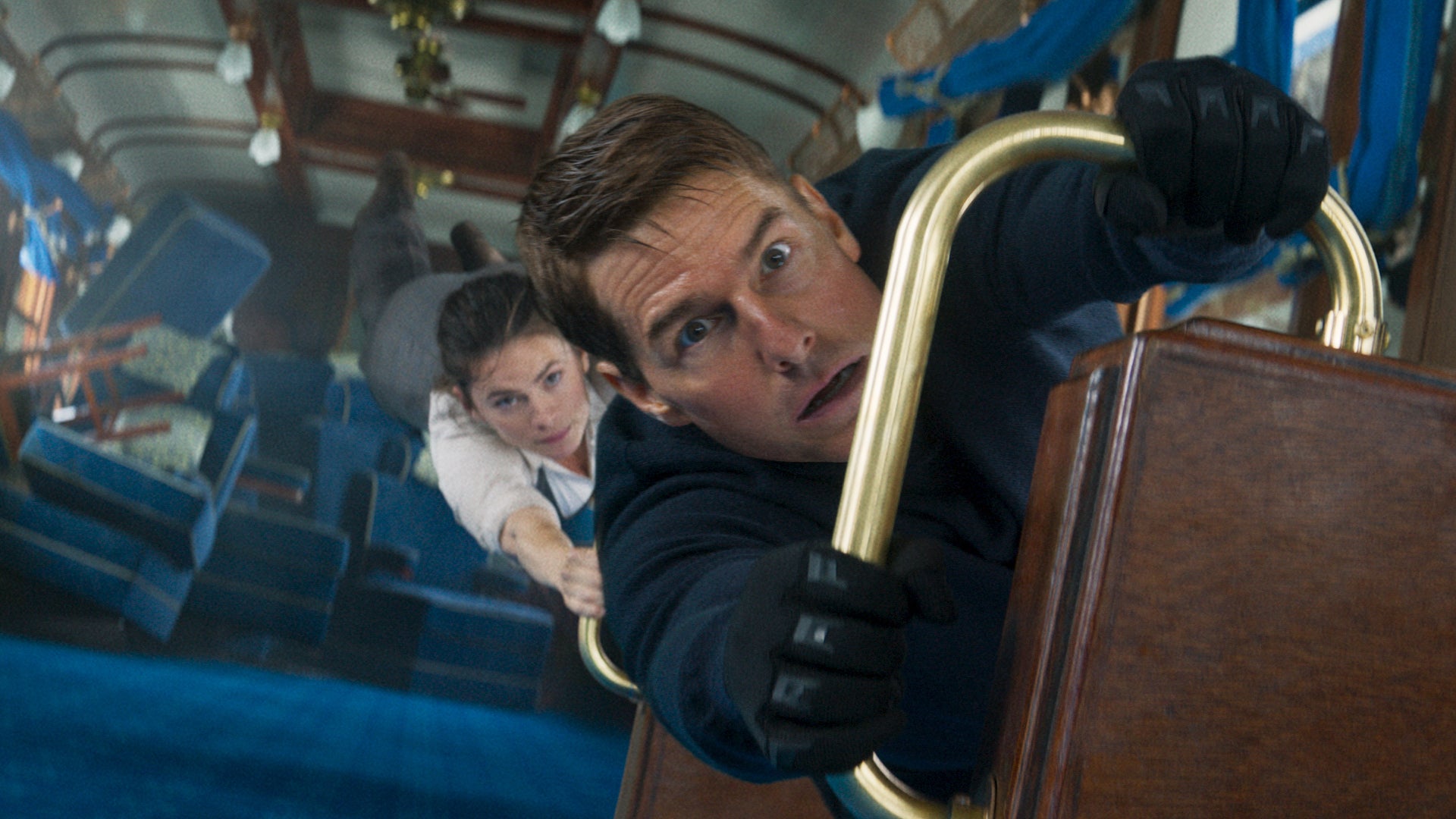
Mission: Impossible - Dead Reckoning Part One (2023) is an intelligent movie. Of course, it has flaws, but it’s grandiose in its ambitions and execution. The stakes have never been higher. It figures!
By Emad Aysha
Ethan Hunt, aka Tom Cruise, has been tasked with finding a code key from a sunken Russian sub that can control an AI engine (the ‘entity’) that’s gone rogue and is trying to control the world while the world powers struggle to maintain it.
Note the imagery.
The bad guy here, Esai Morales, is called ‘Gabriel’. Someone who thinks he’s the representative of God on earth. He thinks the future is set and that he’s on the winning side. That’s the classic definition of a fanatic, a word used explicitly here.
More than that, Gabriel is quite literally the face of evil, someone you need to see to look at the faceless, cold, calculating thing that the entity is. He’s also the doubleganger of Ethan Hunt, his Agent Smith.
Gabriel uses knives just like him, is just as consummate a planner and is dedicated and skilled at picking a backup team. The only difference is that he has no moral scruples. The code keys are shaped like crosses and remind you of Grail mythology, with Hunt’s mission in an old-world country like Italy reminding you of Indiana Jones or even the Da Vinci code.
Check the bomb sequence in the airport with its old-fashioned cypher mould and the riddles it poses. The scene with the heads of US intelligence is a kind of mini-United Nations, with a multiracial mix of characters, including Indira Varma.
It takes time to sink in, but it’s a foil for understanding what is at stake and the kind of bickering and sectionalism lying behind the scenes of the world powers when faced with a common threat.
I presume having a British arms dealer or ‘broker’ – The White Widow (Vanessa Kirby) – who has to choose which side she’s on is a reference post-Brexit Britain. Her henchman is an Italian dude, and the CIA director (from the very first MI movie, Kittridge aka Henry Czerny) is trying to draw her back to the Atlantic alliance. (She is also the daughter of the original arms dealer in the first movie. Talk about playing the nostalgia card).
The new girl, with her religious name ‘Grace’ (Hayley Atwell), is also English and trying to choose which side to commit to. She is a clear replacement for the old girl, Ilsa Faust (Rebecca Ferguson).
You guessed Ilsa would get killed here since her relationship with you know who can’t go anywhere anymore. That is one of the few things I didn’t like about the movie, the half-predictability of a good chunk of it – as an algorithm wrote it.
Still, those little mistakes (and ego trips) are forgivable given the incredible and very non-CGI stunts that Tom Cruise does by himself, along with the pacing, tension, morality games, drama, cool casting, awesome action and humour, and fun. Not to forget the cool soundtrack and TV theme.
Everybody and everything in this movie is memorable, from the submarine crew that goes down to the major and medium-sized characters, including the ruthlessly sadistic assassin Paris (Pom Klementieff) and the typically obedient GI that is Shea Whigham.
That’s the marker of a great movie. You can have as large a cast as you like, and a skilful director can make you care about and remember every single one of them. Just watch The Concorde... Airport '79 (1979) or Alien (1979) and Blade Runner (1982), The Night Stalker (1972) or even Above the Law (1988), and you’ll see what I mean.
These movies also had the right mix of laughs and tears and tension and triumph, never to leave you bored and always leave you enlightened. Remarkably, they were able to pull it off here in his era of corporate mediocrity and politically correct mumbo jumbo and anti-masculinism.
I’m no fan of Tom Cruise’s ego but boy, does he know how to entertain, and he is a brilliant actor when he needs to be. And one of his plus points is that he knows his characters can’t shine without a formidable opponent to pit himself against.
So Tom Cruise has countered another choking trend in cinema today, which is to have mediocre bad guys. You could see this in the second MI movie, with Dougray Scott, while Ghost Protocol (2011) injected humour into an until then too-serious mix.
It’s also nice to find great minds working alike. We’re all worried about AI, social media, virtual reality and the metaverse in the Arab world, and its’ come out in novels I’ve reviewed here. And you even have a sci-fi conspiracy thriller aptly named The Entity, Al-Kayan, by Mahmoud Abdel Rahim.
But it’s good to see more in-depth conspiracy theories taking on in the West. I’d mistakenly thought Trumpism and the whole thing about Fake News inspired this movie. Still, the proper IMF (and World Bank) is lampooned here with sinister allusions to the military-industrial complex.
Sometimes democracy needs to be saved from itself, another thing Ethan Hunt does here, which is why he wants to destroy the entity instead of control it. How ironic that a Russian code key can do the trick, people mistrustful of technology and with strong religious inclinations. Nothing like old-world wisdom to guide you. The same bracket we’re in as Arabs and our otherwise benign science fiction imagination. It’s always good to be one ‘ethical’ step ahead of Ethan Hunt.






